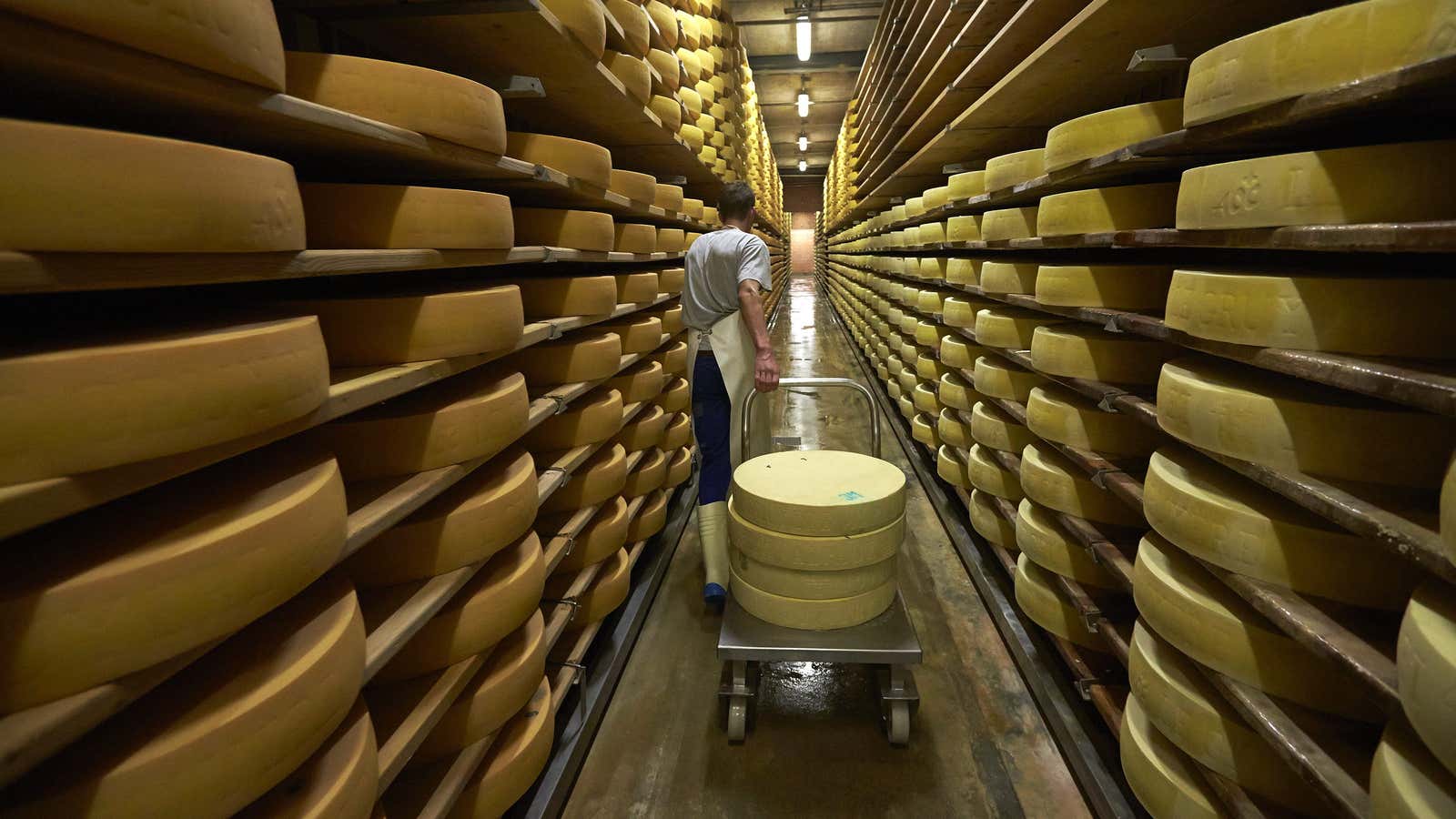A recent bout of listeria infection potentially caused by cheese has reignited the fierce debate around raw milk.
On March 9, the Centers for Disease Control (CDC) announced that two people had died in Vermont and Connecticut and four others had fallen ill after eating soft, raw-milk cheese from Vulto Creamery, an artisanal cheesemaker based in upstate New York. All six people had been infected with listeria. Vulto has recalled all of their raw-milk cheeses and—while the investigation into the outbreak is ongoing—the creamery is now being sued by the widow of one of the men who died.
While raw-milk cheese has long been common in Europe, the sale and legality of such products varies state by state in the United States. While advocates of raw-milk products say that the process of pasteurizing milk kills some of the flavor of cheese, the US Food and Drug Administration says “raw milk can harbor dangerous microorganisms that can pose serious health risks to you and your family.”
However, the deaths have caused concern amongst some stores that stock artisanal raw-milk cheese. Since the recall there have been discussions of the issue amongst storeowners. Since the recall, some stores have made a point of announcing that they do not carry any Vulto Creamery cheeses, while others have defended raw-milk cheese.
“We’re all talking about it, because it’s surprising, sad, and scary to everyone who is in the business of selling higher-quality cheeses,” said Mike Fisher, the general manager of Astoria Bier and Cheese in New York, which does sell Vulto Creamery cheeses but did not have any in stock at the time of the recall. “The question of what this says about raw-milk cheese has certainly come up.”
Righteous Cheese, an artisanal cheese shop in Washington, DC put out a notice after the recall warning customers that had already purchased the cheese from their store. “Ultimately, it is up to each up us to decide if we want to take certain risks for the benefits,” it said, adding that raw-milk cheeses have “an incredible amount of health benefits” that are stripped from milk during the process of pasteurization.
The CDC denies this, saying that consuming raw milk can cause serious infections and does not carry any health benefits at all. The process of heating milk during pasteurization kills germs.
Advocates of raw milk have also taken to criticizing media reports that suggested that the deaths were caused because the cheese was made from raw milk, even though that was what was announced by the CDC. The American Cheese Society said that portions of a New York Times piece (paywall) on the deaths “misrepresent[ed] the hard work and diligent commitment of American cheesemakers,” adding that raw-milk cheeses, when correctly aged, are “among some of America’s safest foods.” Matt Spiegler, a member of the Cheese & Dairy Society, also criticized a Buzzfeed article.
Laura Downey, the owner of Fairfield Cheese, which runs two cheese stores in Connecticut, recalled Vulto Creamery cheeses, but continues to stock other raw-milk cheese. “Deaths are tragic and should never be minimized and our entire industry is devastated by the news,” Downey said. “But the American artisan cheese industry has quite a good track record for safety compared to most foods.”
She was also quick to add that the fact that the cheeses were made from raw milk had little to do with the outbreak—despite the official government notices on the outbreak and all its advice issued on the risks of raw milk.
“Our customers while concerned have been armed with the correct information and a very clear picture of what it actually means and they appreciate our precautions,” she told Quartz. “They are not overly concerned and are taking it in stride.”
